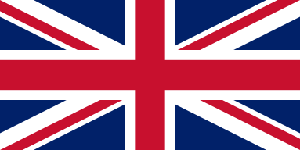National Action Plan - United Kingdom
The United Kingdom of Great Britain and Northern Ireland (UK) has been both directly and indirectly in volved in several international conflicts over the last century. Most recently, the UK has been involved in international operations against Libya, Afghanistan, Iraq and Sierra Leone. While women in the UK receive equal treatment under the law, they remain underrepresented in top positions in politics and business. The UK is ranked 21 out of 153 countries listed on the Global Gender Gap Index (GGI) of 2020. The UK ratified the Convention on the Elimination of All Forms of Discrimination against Women (CEDAW) in 1986. Women enjoy the same legal status and rights as men under family law, labor law, property law, and inheritance law. Women in the UK also have a long history of active advocacy regarding Women, Peace and Security issues such as disarmament, peacebuilding and conflict prevention. Women in the UK face challenges including the lack of women in key leadership positions and in decision making.
volved in several international conflicts over the last century. Most recently, the UK has been involved in international operations against Libya, Afghanistan, Iraq and Sierra Leone. While women in the UK receive equal treatment under the law, they remain underrepresented in top positions in politics and business. The UK is ranked 21 out of 153 countries listed on the Global Gender Gap Index (GGI) of 2020. The UK ratified the Convention on the Elimination of All Forms of Discrimination against Women (CEDAW) in 1986. Women enjoy the same legal status and rights as men under family law, labor law, property law, and inheritance law. Women in the UK also have a long history of active advocacy regarding Women, Peace and Security issues such as disarmament, peacebuilding and conflict prevention. Women in the UK face challenges including the lack of women in key leadership positions and in decision making.
The United Kingdom launched its fourth National Action Plan(NAP) in January 2018 for a period of five years (2018-2022). WILPF’s section in the UK, a member of the Gender Action for Peace and Security Network (GAPS), along with other civil society organisations, participated in the creation of the NAP.
UK Disarmament
While the NAP refers many times to the entrenchment of harmful gender norms and its impact on women’s lives, disarmament and the impact of arms on women in conflict
Monitoring and Evaluation
For the 2018-2022 NAP, the UK adopts a more strategic approach to monitoring, evaluation and learning that maintains accountability to Parliament and streamlines reporting for implementing teams.
UK Indicators
Internationally recognised indicators serve to maintain a situational awareness of WPS issues in the nine
UK Budget
UK Government departments fund work on WPS from their core budgets, such as the FCO’s Global Britain Fund, and the cross-government funds including CSSF.
UK – Action/Activities
Strategic outcomes have no specific actions assigned. The NAP articulates UK’s overall priorities for WPS
Objectives
The 2018-2022 NAP identifies seven strategic outcomes which set the vision for the UK WPS implementation strategy in conflict settings.
Government Actors
The UK NAP is jointly owned by the Foreign and Commonwealth Office (FCO), Ministry of Defence (MOD) and Department for International Development (DFID), supported by the Stabilisation Unit.
UK Civil Society Actors
The NAP was produced in collaboration with civil society and academics, including the Gender Action for Peace and Security (GAPS) Network of UK-based NGOs and the LSE Centre for Women, Peace and Security.
Further Readings
- 2019 The UK’s Implementation of the UN Security Council Resolution 1325 – CEDAW
- 2019 The Impact of the UK’s Arms Transfers and Military Spending on Women’s Rights – CEDAW
- 2017 Assessing UK Government Action on Women, Peace and Security in 2017
- 2017 Security Council Scorecard on Women, Peace and Security: Lessons Learned from 2010-2016
- 2017 Syria Response Consultations on the UK National Action Plan on Women, Peace and Security
- 2016 Explosive Weapons and the Right to Health, Education and Adequate Housing: Extraterritorial Obligations of France, Sweden and the UK under CESCR